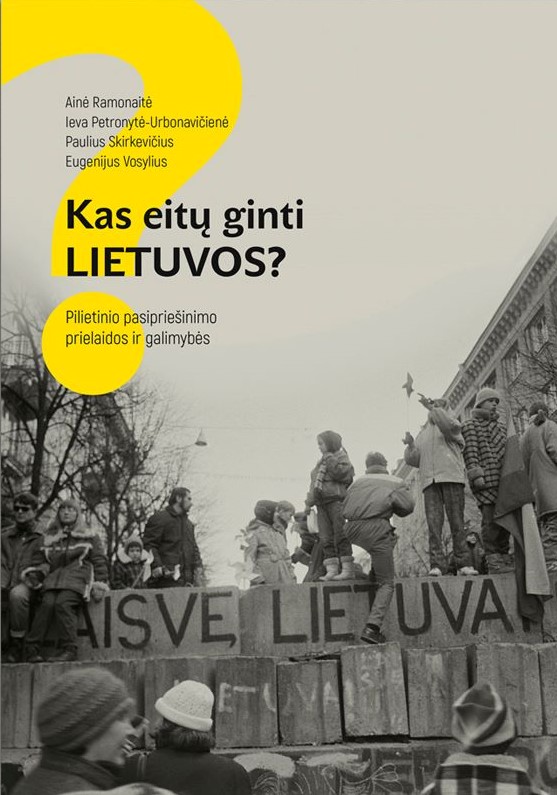
Original title: Kas eitų ginti Lietuvos? Pilietinio pasipriešinimo prielaidos ir galimybės
Publishing date: 2018
Publisher: Aukso žuvys
Language: Lithuanian
Pages: 200
Description:
The national defence strategy of Lithuania strongly relies on the concept of civilian-based defence. The history of modern Lithuania, e.g. the events of January 1991, has proved that civil resistance can be successfully applied not only for deterrence but also for stopping an aggressor from using force. Recently, the relevance of the concepts of civilian-based defence and societal security has been increasing even more against the backdrop of hybrid threats from Russia. The aim of the book is to analyse the capacities of civilian-based defence in present Lithuania. Using historical evidence and the data of the public opinion survey carried out in February-March 2017, it explores the willingness of the Lithuanian citizens to fight for their country and/or to participate in nonviolent resistance against a foreign aggressor. The book consists of seven chapters. In the first chapter, the repertoires of contention of Lithuanian society are explored including post-war anti-Soviet armed resistance, underground activities, cultural resistance, Sąjūdis movement and bloody events of January 1991. The second chapter provides a general overview of the data of the public opinion survey on the perceived threats and evaluation of Lithuanian defence system, personal decisions in the face of aggression and willingness to take part in various defence and/or resistance activities.The next three chapters analyse the factors determining one’s decision to join the resistance, including political support, civic skills and social capital, personal social networks, calculations of costs and efficiency of an action. The sixth chapter explores the resilience of Lithuanian citizens against the influence of Russian propaganda. Finally, the last chapter summarises the results and discusses the means of increasing the capacity of civil resistance in Lithuania. In general, the historical evidence and the results of the survey had shown a rather positive picture of the capacities of the civilian-based defence in Lithuania, i.e. the willingness of Lithuanian citizens to fight for their country and freedom, especially by means of non-violent resistance. The data, however, reveals that many citizens lack knowledge on how to act in case of emergency or foreign aggression. Male and young people are more willing to participate in the defence of the country than female and senior citizens. Support for political community and for democracy, past experience in anti-Soviet resistance activities, civic skills, membership in voluntary organisations increase citizens’ commitment to engage in activities of defence and resistance. Nostalgia towards the soviet past, in contrast, negatively correlates with the willingness to fight, and it is the main factor diminishing the resilience against the Russian propaganda. One of the most important determinants of one’s behaviour is the sense of duty and the conduct of his or her closest friends and family members.
Cite as: Ramonaitė, A. et al. (2018) Kas eitų ginti Lietuvos? Pilietinio pasipriešinimo prielaidos ir galimybės. Vilnius: Aukso žuvys.
Įsigyti leidinį galite čia.







